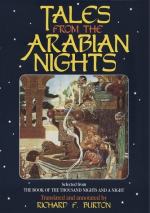The origin of pederasty is lost in the night of ages; but its historique has been carefully traced by many writers, especially Virey,[FN#367] Rosenbaum[FN#368] and M. H. E. Meier.[FN#369] The ancient Greeks who, like the modern Germans, invented nothing but were great improvers of what other races invented, attributed the formal apostolate of Sotadism to Orpheus, whose stigmata were worn by the Thracian women;
—Omnemque
refugerat Orpheus
Foemineam
venerem;—
Ille
etiam Thracum populis fuit auctor, amorem
In
teneres transferre mares: citraque juventam
AEtatis
breve ver, et primos carpere flores.
Ovid
Met. x. 79-85.
Euripides proposed Laius father of Oedipus as the inaugurator, whereas Timaeus declared that the fashion of making favourites of boys was introduced into Greece from Crete, for Malthusian reasons said Aristotle (Pol. ii. 10), attributing it to Minos. Herodotus, however, knew far better, having discovered (ii. c. 80) that the Orphic and Bacchic rites were originally Egyptian. But the Father of History was a traveller and an annalist rather than an archaeologist and he tripped in the following passage (i. c. 135), “As soon as they (the Persians) hear of any luxury, they instantly make it their own, and hence, among other matters, they have learned from the Hellenes a passion for boys” ("unnatural lust,” says modest Rawlinson). Plutarch (De Malig, Herod. xiii.)[FN#370] asserts with much more probability that the Persians used eunuch boys according to the Mos Graeciae, long before they had seen the Grecian main.
In the Holy Books of the Hellenes, Homer and Hesiod, dealing with the heroic ages, there is no trace of pederasty, although, in a long subsequent generation, Lucian suspected Achilles and Patroclus as he did Orestes and Pylades, Theseus and Pirithous. Homer’s praises of beauty are reserved for the feminines, especially his favourite Helen. But the Dorians of Crete seem to have commended the abuse to Athens and Sparta and subsequently imported it into Tarentum, Agrigentum and other colonies. Ephorus in Strabo (x. 4 Section 21) gives a curious account of the violent abduction of beloved boys ({Greek}) by the lover ({Greek}); of the obligations of the ravisher ({Greek}) to the favourite ({Greek})[FN#371] and of the “marriage-ceremonies” which lasted two months. See also Plato, Laws i. c. 8. Servius (Ad AEneid. x. 325) informs us “De Cretensibus accepimus, quod in amore puerorum intemperantes fuerunt, quod postea in Lacones et in totam Graeciam translatum est.” The Cretans and afterwards their apt pupils the Chalcidians held it disreputable for a beautiful boy to lack a lover. Hence Zeus, the national Doric god of Crete, loved Ganymede;[FN#372] Apollo, another Dorian deity, loved Hyacinth, and Hercules, a Doric hero who grew to be a sun-god, loved Hylas and a host of others:




